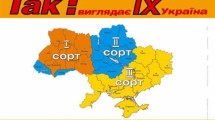Abstract
Rhetoric is at present the object of a rehabilitation on a grand scale, all the more as it overlaps the fields of literature, linguistics, and philosophy. Actually, if philosophy rejects and removes rhetoric, it is nevertheless, as a method of word, wholly impregnated with it. To investigate the complex relationship of mutual implication in which rhetoric and philosophy are involved is part and parcel of this plan of re-evaluation of rhetoric as “discourse art” with a view to a re-definition of its field and functions. In this perspective, rhetoric articulates itself within, in relation to, and with Plato's dialogues in a much more subtle and complex manner than warranted by the process of “anti-rhetoricalness” initiated by philosophy against rhetoric after Plato. Going back to the origins of this conflict and recalling the system of oppositions supporting the official Platonic vulgate, this study begins to pave the way for a micr-reading of the Platonic text regarded as a paradigm of philosophic textuality. It is certainly true that the Phaedrus, the Gorgias, and the Symposium set up a system of oppositions between between rhetoric and dialectrics which are in contrast with each other in the word practices, in the rules and methods of discourse, and which are antinomic in their ends. This system of oppositions always seems to be referable to the opposition between “speaking fair” and “speaking the truth”. But the strategies and procedures set going in the Symposium, in particular in “Agathon's speech” and in “Diotima and Socrates' speech” betray a much closer connection between the supposed “bad rhetoric” revealed by Phaedrus and the “good rhetoric” which is dialectrics.
The search for this connection is conducted through two types of reading of the Symposium. In actual fact, between the paronomasia on the agathoi and that on “Gorgias' head” (this Gorgon of rhetoric) there takes place a speech, Agathon's, whose parodied, exacerbated, and counterfeit rhetoric allows us to gauge Plato's own rhetoric in this artefact which distances itself, more or less openly, from Gorgian rhetoric. This “hyper-rhetoricalness” and “over-grammaticalness” cannot be there with the sole aim of serving as evidence against rhetoric. It is in fact possible to perceive through the web of the text the ends, quite rhetorical themselves, which preside over the structure of Agathon's speech, seen from the viewpoint of the figure of the antithesis.
Thus, it is in the play of a “neo-rhetoricalness” where we must, in the last analysis, look for the spring allowing the philosophical discourse to overturn the rhetorical one. And while in Giorgias what clothes the discourse is actually the truth, in Plato it is the antinomy between “speaking fair” and “speaking the truth”, conveniently set up, which forms the basis of the function of diversion by which Socrates points out — in the complex network of the continuity and discontinuity existing between rhetoric and philosophy — the structures of reversal and the original upheavals which Plato imposes on the relation between rhetorical and dialectric discourse. Actually, dialectrics is found in “Socrates and Diotima's speech”, not as “anti-rhetoric”, but rather as a “transposition” of the rhetorical discourse, thus acquiring the traits of a “neo-rhetoric”. The analysis of this discourse, which constitutes the second reading exercise of the Symposium, allows us to pick out the aversion and inversion strategies that turn dialectrics in an overtuned rhetoric. The founding deed of this “inversion” (rather than “separation”) is recognizable in the alteration it introduces in the first plase in the type of discourse, which from a rhetorical, explicitly addressed, macrological, monological, and continuous discourse turns into a dialectical, brachylogous, dialogic discourse with partners and interlocutors, i.e. into a dialogue; in the second place, the subject of the discourse shifts from the locuteur, author and signer of the discourse to ever-present interlocutors who end up by making room for a talking and knowing speaker in a regime of anonymous subjectivity: this is an extreme alteration of the anthropological and epistemic subject, culminating in the scientific discourse of Euclidean geometry. Finally, the inversion is recognizable in the object of the discourse, whose prâgma slips from being the predicate of a qualified grammatical subject into a process of objectivation and substantivation, thereby moving from the rhetorical question “What is beautiful?” to the philosophical question “What is the beautiful?”.
The hypothesis of a “neo-rhetoricalness” of dialectics, underlying this research, is therefore more Platonic than it appears, insofar as between rhetoric and dialectics there has been a tradition which has tried to wipe out the traces of its transmission, but where the neo-rhetoricalness of dialectics shows through quite clearly, taking advantage, without admitting it, from a more ancient rhetoric than it is itself. (A.T.)
Similar content being viewed by others
Bibliographie
Aubenque, P.: 1962, Le problème de l'être chez Aristote. Essai sur la problématique aristotilicienne, P.U.F., Paris, 19662.
Barthes, R.: 1970 ‘L'Ancienne Rhétorique. Aide-mémoire’, Communications 16, 172–229.
Benveniste, E.: 1966, Problèmes de linguistique générale, I, Gallimard, Paris.
Boll, F. et W. Buchwald: 1969, Platon, Symposium, 6, verbesserte Auflage, Heimeran Verlag, München.
Couloubaritsis, L.: 1986, ‘Dialectique, Rhétorique et Critique chez Aristote’, in M. Meyer (éd.), De la Métaphysique à la Rhétorique. Essais à la mémoire de Chaïm Perelman, Editions de l'Université de Bruxelles, Bruxelles, pp. 103–118.
Derrida, J.: 1967, ‘La parole soufflé’, in L'écriture et la différence, Seuil, Paris, pp. 253–292.
Detienne, M.: 1967, Les maîtres de vérité dans la Grèce archaïque, Maspéro, Paris, 1980.
Detienne, M., éd.: 1988, Les savoirs de l'écriture en Grèce ancienne, Presses Universitaires de Lille, Lille.
Dixsaut, M.: 1985, Le naturel philosophe. Essai sur les Dialogues de Platon, Belles Lettres et Vrin, Paris.
Dover, K.: 1980, Plato, Symposium, Cambridge University Press, Cambridge.
Ducrot, O. et T. Todorov: 1972, Dictionnaire encyclopidique des sciences du langage, Seuil, Paris.
Dumont, J. P.: 1969, Les Sophistes. Fragments et témoignages, R.U.T., Paris.
Festugière, A. J.: 1973, Les trois ‘Protreptiques’ de Platon. Eutidème, Phédon, Epinomis, Vrin, Paris.
Foucault, M.: 1984, Histoire de la sexualité, 2: L'Usage des Plaisirs, Gallimard, Paris.
Genette, G.: 1969, ‘Rhétorique et enseignement’, in Figures II, Seuil, Paris, pp. 23–48.
Genette, G.: 1970, ‘La rhetorique restreinte’, Communications 16, 158–171.
Goldschmidt, V.: 1947, Les Dialogues de Platon. Structure et méthode dialectique, P.U.T., Paris, 19632.
Granger, G. G.: 1988, Pour la connaissance philosophique, Odile Jacob, Paris.
Guthrie, W. K. C.: 1976, Les Sophistes, trad. frse J. P. Cottereau, Payot, Paris (éd. originale The Sophists, Cambridge University Press, Cambridge, 1971).
Hadot J. P.: 1980a, ‘Philosophie, Dialectique, Rhétorique dans 1'antiquité’, Studia Philosophica 39, 139–166.
Hadot, J. P.: 1980b, ‘Sur divers sens du mot pragma dans la tradition philosophique grecque’, in P. Aubenque (éd.), Concepts et categories dans la pensée antique, Vrin, Paris, pp. 309–319.
Hellwig, A.: 1973, Untersuchungen zur Theorie des Rhetorik bei Platon und Aristoteles, Van den Hoek & Ruprecht, Göttingen.
Jakobson, R.: 1963, Essais de Linguistique générale, II, Minuit, Paris.
Joly, H.: 1974, Le renversement platonicien. Logos, Episteme, Polis, Vrin, Paris, 19802, 19853.
Joly, H.: 1985, ‘Les mots et les choses d'Homèrè à Platon. Essai de perspectives philosophiques et diacroniques’, in Greek Philosophical Society (ed.), Language and Reality in Greek Philosophy, Papers read at the Second International Philosophy Symposium, Athens, May 1984, pp. 67–91.
Joly, H.: 1986a, ‘Retour aux Grecs. Reflexions sur les “pratiques de soi” dans L'Usage des Plaisirs’, Le Débat 41, 100–120.
Joly, H., éd.: 1986b, Philosophie du langage et grammaire dans l' Antiquité, Actes d'un colloque du Groupe de recherches sur la Philosophic et le Langage, Universite II de Grenoble et URA 1230 CNRS, Ousia, Bruxelles.
Joly, H.: 1987a, ‘Rhétorique du discours d'avenir et elements de la deliberation selon Aristote’, in L Avenir, Actes du XXIe Congrès de l'Association des Sociétés de Philosophie de Langue Française, Athènes, juillet 1986, Vrin, Paris, pp. 230–233.
Joly, H.: 1987b, ‘Merveilleuse Odyssee’, in Le Merveilleux, Actes du Colloque d'Oslo 1986, Publications de l'Université d'Oslo.
Joly, H.: 1988, ‘La philosophic comme métaphore’, in La Métaphore, Cahiers du Groupe de Recherches sur la Philosophie et le Langage, n. 9, Universite II de Grenoble et CNRS URA 1230, Grenoble, sous presse.
Kuentz, P.: 1970, ‘Le ”rhétorique” ou la mise ä l'écart’, Communications 16, 143–157.
Lasserre, F.: 1962, ‘La condition du poète dans la Grèce antique’, Etudes de Lettres, V, Lausanne.
Lètoublon, F.: 1983, ‘Le miroir et la boucle’, Poétique 53, 19–36.
Michel, A.: 1982, ‘La théore de la rhetorique chez Ciceron: Eloquence et Philosophie’, Fondation Hardt, t. XXXVIII, Eloquence et rhetorique chez Ciceron, Vandoeuvres, Genève.
Mugler, C.: 1959, Dictionnaire historique de la terminologie géométrique des Grecs, Klincksieck, Paris.
Norden, E.: 1909, Die antike Kunstprosa, Teubner, Leipzig-Berlin.
Pariente, J. C.: 1985, L'analyse du langage á Port-Royal. Six etudes logico-grammaticales, Minuit, Paris.
Perelman, C. et L. Olbrechts-Tyteca: 1958, Traité de l'argumentation. La nouvelle rhétorique, I, P.U.T., Paris; Editions de l'Université de Bruxelles, 19702.
Richard, M. D.: 1986, L'enseignement oral de Platon. Une nouvelle interpretation du platonisme, éd. du Cerf, Paris.
Robin, L.: 1908, La théorie platonicienne de l'amour, Alcan, Paris.
Robin, L.: 1929, Platon, Le Banquet, Belles Lettres, Paris.
Svenbro, J.: 1976, La parole et le marbre, Lund. Untersteiner, M.: 1949, Sofisti, Testimonianze e frammenti, Fasc. II, La Nuova Italia, Firenze, 19612.
Vernant, J.-P.: 1985, La mort daps les yeux, Hachette, Paris.
Author information
Authors and Affiliations
Rights and permissions
About this article
Cite this article
Joly, H. Sur la tête de Gorgias. Le “parler beau” et le “dire vrai” dans Le Banquet de Platon. Argumentation 4, 5–33 (1990). https://doi.org/10.1007/BF00186296
Issue Date:
DOI: https://doi.org/10.1007/BF00186296




